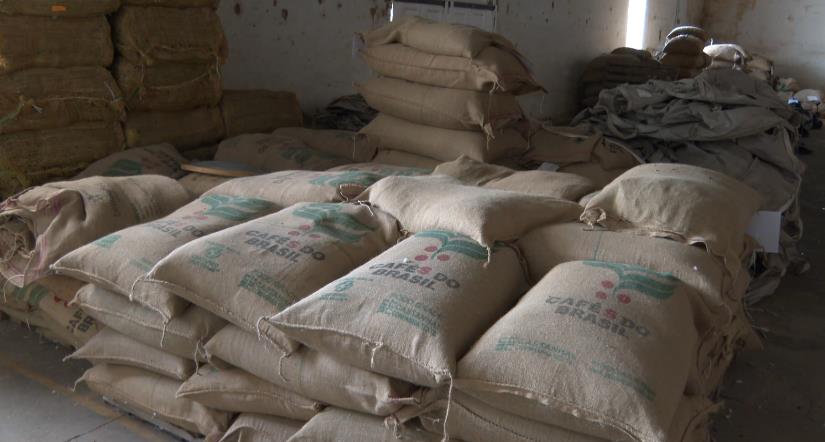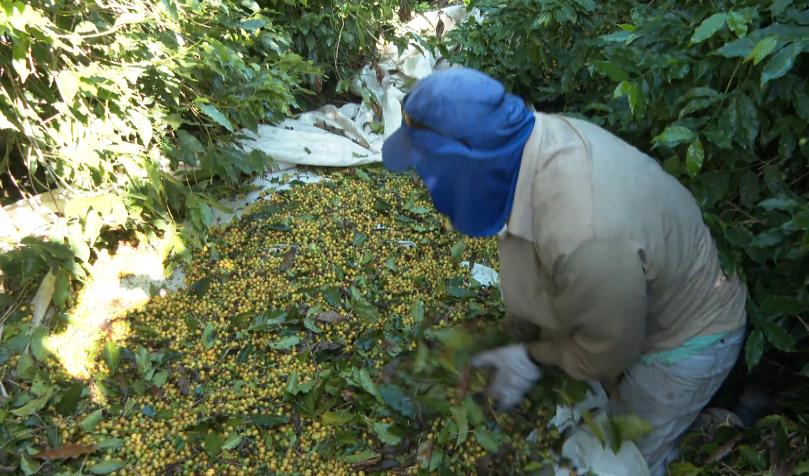
As the world's largest coffee exporter, Brazil plays a vital role in the global coffee market.
Reports say global coffee prices reached a record high of over three dollars and 40 cents U.S. per pound in December, surpassing the previous record set in 1977.
But though international coffee prices are soaring, Brazil has not only delivered strong export performance, but has also seen a shift in its trading model—from long-term futures contracts to more short-term deals with global buyers.
Lei Xiangping has more.

Coffee beans for exports [Photo: China Media Group/Lei Xiangping]
Business is booming at Expocacer, a major coffee cooperative in the Cerrado region of Minas Gerais—one of Brazil’s leading coffee-producing areas.
The cooperative supports more than 600 local growers and exports specialty coffee to over 30 countries.
Despite recent setbacks in production caused by adverse weather, Expocacer’s exports are thriving.
In 2024, the cooperative exported 550,000 bags of coffee, generating 840 million reais or about 144 million US dollars, up 41% from the previous year.
Cooperative director Simao Pedro de Lima says the surge in prices has strengthened their push for international expansion.
"We closely monitor market trends and guide our members to reach their full potential by targeting more profitable markets. To offset losses from lower yields, we've opened two new coffee transit hubs—one in the UK and one in the US. The US hub has been operating for a year and helped increase local sales by 15% through partnerships with small and medium-sized clients."

A worker harvests coffee at a plantation in Brazil. [Photo: China Media Group/Lei Xiangping]
Expocacer's success is part of a broader national trend. Across Brazil, higher global coffee prices have led to a significant jump in export value.
In the first two months of this year, Brazil exported over 7.3 million bags of coffee—down 5.4% from the same period last year. However, the total export value reached over 2.5 billion US dollars, rising more than 58 percent.
According to Marcio Ferreira, president of Brazil's Coffee Exporters Council, Brazil exported an average of 43 to 44 million bags per year over the past five years, accounting for about 37% of the global market.
But last year, exporters made the most of the favorable market conditions.
Analysts say the sharp rise in prices is also reshaping how global buyers work with Brazilian exporters. Previously, when prices were stable, exporters and buyers often signed medium- to long-term contracts, locking in future prices.
The recent price surge has given Brazil's coffee exporters a rare opportunity to boost profits. But whether the country can sustain this momentum—and consistently meet global demand—will depend on time, weather, and the resilience of Brazil's coffee sector.
